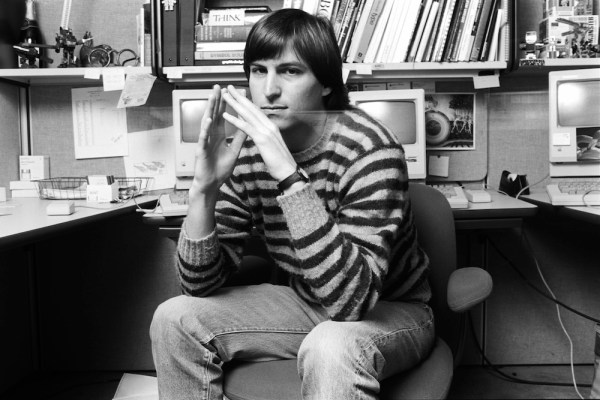Earlier this week, I joined a group of journalists to meet with director Alex Gibney and discuss his new film, Steve Jobs: The Man in the Machine — and the first thing he did was put away his iPhone.
It was no big deal, but the action took a little extra humor and weight since the documentary is all about our relationship with Jobs and the products he created. It opens with footage of the mass outpouring of grief after Jobs’ death in 2011, and the rest of the movie asks: Why did people feel so much attachment to the CEO of an enormous tech company? And is Jobs really worthy of such admiration?
Gibney isn’t trying to convince people that they should stop buying Apple products — after all, he’s still got that iPhone. Instead the aim is to raise questions about Jobs’ values and the influence those values had on the rest of Silicon Valley (where Gibney often sees a similar “rough-and-tumble libertarian vibe”).
“The way the Jobs film ends, there’s no prescription there,” he said. “To me, the best films are the ones that force you, not force you but encourage you to take something out of the theater and the questions roll around you in your head.”
On the other hand, the film’s ability to address those questions may have been hampered by the fact that many people declined to be interviewed — there’s no Steve Wozniak, no one currently at Apple, and the closest you get to Jobs’ family is Chrisann Brennan, the mother of his first child Lisa. In fact, Gibney recounted how Apple employees walked out of a screening of the movie at South by Southwest — at the time, Apple’s Eddy Cue tweeted that it was “an inaccurate and mean-spirited view of my friend.”
“The film is not a slam,” Gibney countered. “The film is a meditation on this guy’s life and what it meant to us. It’s not so simple.”
The movie certainly highlights the less positive aspects of Jobs’ story, particularly in a long section towards the movie’s end, where Gibney covers topics like stock backdating, antitrust litigation, conditions at the Foxconn factories that actually build Apple products and Jobs’ fight with tech blog Gizmodo over the lost iPhone 4 prototype.
I was particularly struck by the amount of time devoted to the stock backdating case, which is discussed in more depth than the development of any individual Apple product. Gibney said that it was “worth covering in detail” for a number of reasons. For one thing, there’s “the betrayal of that story — two of the people who were essential in [Apple’s] comeback [namely, CFO Fred Anderson and general counsel Nancy Heinen] get thrown under the bus.”
In addition, Fortune editor-at-large Peter Elkind (who worked with Gibney on this film, and on previous movies including Enron: The Smartest Guys In The Room), had obtained video of Jobs’ deposition with the Securities and Exchange Commission — a deposition that became “the hidden backbone of the film.”
Gibney said the footage highlights how movies can shed new light on a subject. He admitted that it “drives me a little bit crazy” when reviewers say that there’s nothing new in a movie, “as if what a film should be is a list of facts.” In Gibney’s view, “it’s not really about the facts, it’s about the texture.” So in the case of the deposition, you could just read the transcript, but it wouldn’t capture what Gibney saw as “the vicious, sarcastic contempt for the SEC examiners” that Jobs revealed in the footage.
But again, not everything shown in the film is negative. For my money, the actual best scene is an interview with Bob Belleville, head of engineering on the original Macintosh team. Belleville speaks ruefully about how he didn’t realize how bad working for Jobs could be. Yet when he reflects on Jobs’ death, he starts to cry, intensely. It’s a complex, moving moment — and, to Gibney’s point, it’s not really something that can be captured in writing.
So, okay, the documentary is meant to ask questions rather than answer them. But still, Gibney must have his own thoughts on what Jobs really cared about?
“I can only guess,” he said. “My view is that he really did think that by making products that were really beautiful and really good and really attractive to people, he was really changing the world. Maybe that’s an aspect of Zen that he embraced — focus on one thing, do that really well, and … everything else is bullshit.”
Steve Jobs: The Man in the Machine is playing in theaters and available through video-on-demand.
